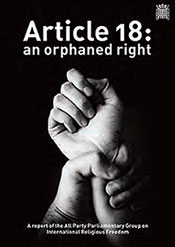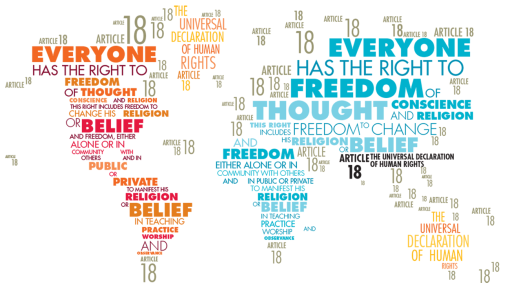Christians are numerically the most persecuted people-group on the planet. The figures are astounding: 450,000 Christians have left Syria; 3,000 Christians are imprisoned in Ethiopia; 50-70,000 are in concentration camps in North Korea. At the turn of the 20th century 20% of the Arab world was Christian, now it is barely 2%. According to Pope Francis, there are more Christian martyrs today than in the 1st century.
Hear the awkward silence. The scraping of chairs. The buzzing of electric lights. In our secular/religion-lite society, in which people would like religion to remain a quiet, quaint and inconsequential lifestyle choice, the concept of real persecution takes some teasing out. People wonder first why anyone would care about something as vague as another persons religious belief. It’s not like it’s football.
Even when we explain we aren’t talking about mild teasing, or inconvenience, but of limbs cut off, of imprisonment without trial, of congregations murdered in cold blood their churches… still, politically, awkward silence.
I went to an event in Parliament yesterday organised by the All Party Parliamentary Group (APPG) on International Freedom of Religion or Belief and Christians on the Left, hosted by shadow Foreign Secretary Douglas Alexander MP and Baroness Berridge. They are a group committed to raising the profile of persecution, not just of Christians, but people of all faiths and of none, as a human rights issue. Because despite being the most commonly abused human right, it is the least openly discussed in this country.
Douglas Alexander said that anti-Christian persecution should be named as such, and along with anti-semitism and Islamophobia be talked about and not ignored. Not because Christians are better or more important, but because they need a voice, and because they are human. As do every other persecuted minority group.
 This is where we get twisted in knots. In international politics religion plays such an important and defining role, and yet our own political discourse tries to ignore it. Nobody quite knows what to do. If we mention persecution of Christians, does that mean we are ignoring other groups? No. Does it mean we think we should prioritise them over other groups? No. It means that Christians are our neighbours too.
This is where we get twisted in knots. In international politics religion plays such an important and defining role, and yet our own political discourse tries to ignore it. Nobody quite knows what to do. If we mention persecution of Christians, does that mean we are ignoring other groups? No. Does it mean we think we should prioritise them over other groups? No. It means that Christians are our neighbours too.
As in our local communities we would help people regardless of their beliefs or ethnicity, so globally we should help people regardless of the same.
Wouldn’t it be a good thing that instead of being bullied or frightened out of talking about Christian persecution, Christians were known to be those who actively cared; not just for Christians, but for all who are persecuted. As Douglas Alexander put it, ‘modernity and secularism has created a society with the presence of layered identities in communities that we have to hold together; we are in danger across the globe of retreating from the ‘other’, those whom we do not understand, and we cannot allow that to happen.’ It is a Christian principle to have a ‘sustained capacity for sympathy for those who are not like us’. We must take hold of that, and be global leaders in that.
We cannot simply hope the issue will go away, or just applies to a few irrelevant religionists. Yes there are complications. There are many vested interests in local and global politics, many who want no mention of religion in this nation’s dialogue; and issues about trade, aid, and what it ‘looks like’ to be meddling in other country’s politics. But I commend the APPG and CoTL for putting it on the agenda. This is a serious human rights issue. To love our neighbour is to care about it.
…
Resources: Douglas Alexander’s full speech will be available on the CoTL website
The Freedom Declared website is intended to be a portal for information about religious and belief persecution worldwide, therefore broader than groups such as Open Doors who focus specifically on persecution of Christians.
A good background article can be found on God and Politics UK.

recent comments